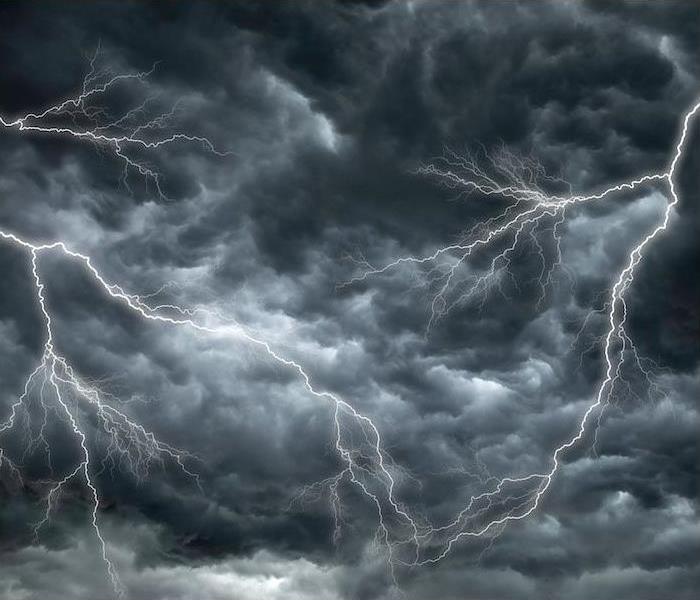Lightning: Basic Facts to Know | SERVPRO® of Queen Anne’s, Kent & Caroline Counties
9/9/2019 (Permalink)
Thunderstorms can cause damage in many ways, but one of the most violent ones is via lightning. Lightning can do more than cause fatalities—it can start fires, damage a building’s electrical wiring and lead to structural issues when it strikes. Because of the misinformation surrounding lightning, we accrued some basic facts and guidelines for preventing lightning damage.
The Origins of Lightning
As a thunderstorm is formed, it develops an electrical charge, which is what causes thunder and lightning. The lightning bolts we see are a discharge of this electrical current in the form of a bolt.
Lightning often strikes from one cloud to another, because its electrical charge is insulated within their cover. When striking toward the ground, lightning will often choose an object to pass through to simulate this insulation. Because buildings have electrical wiring and water pipes in place, they are an ideal choice for lightning to hit.
The Damages Caused by Lightning
Lighting can cause damage to a house in a number of ways, and homeowners should be aware of this and know what precautions to take.
Fires can start. Recorded as hitting temperatures up to 500,000 degrees, lightning bolts can ignite wood and other material on impact. These high temperatures can also cause lightning to damage wiring within a home’s walls, leading to electrical fires later on. If your home has been struck, the fire department may be able to test your home’s wiring to determine if it has sustained hazardous damage.
Electronics can get overloaded. A home’s typical electricity levels are nowhere near as high as the charge lightning carries, so when struck, the circuits can get overloaded with charge and pass this on to any device that’s plugged in. By using surge protectors, homeowners can protect their electronics and appliances from damage.
Structural damage can occur. Lightning striking within the clouds is what causes thunder due to the shock waves that are produced. These shock waves are also produced when lightning strikes an object or the ground, and can lead to serious structural damage due to their force. If a lightning strike has happened nearby, check the home for structural damages right away.
If your home has been affected by storm damages or lightning-related fires, give us a call today! We are experts in damage cleanup and can restore your damage quickly.





 24/7 Emergency Service
24/7 Emergency Service
